| The
day we arrived in Cairo, we had been traveling through the night and were
all exhausted. We were driven to Ramses College, got a brief tour of
our new home, and promptly fell asleep on the sofas! |
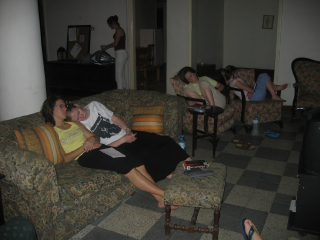 |
| Language
classes at Dar Camboni began the day after we arrived in Cairo! |
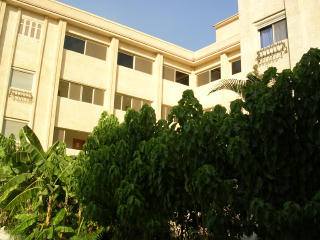 |
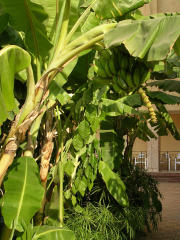 |
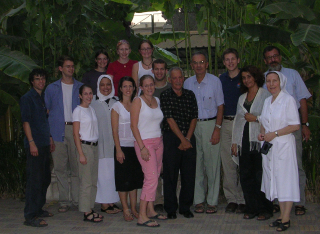
|
| Dar
Camboni and its banana tree garden |
The group with our
teachers and classmates |
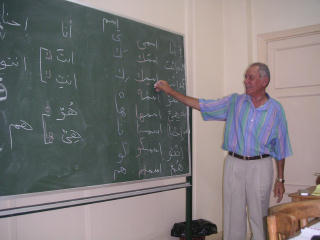 |
Class with Ibrahim |
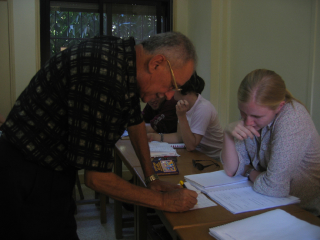 |
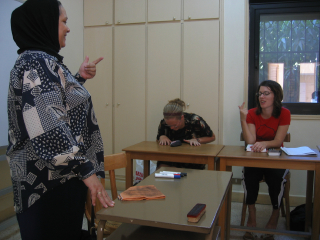 |
Class with Ashgan |
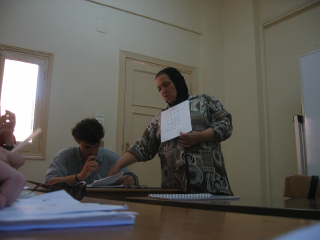 |
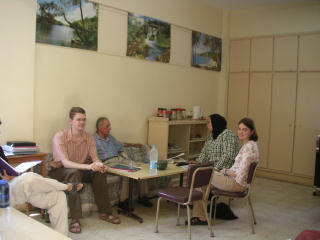 |
Hanging out in the
tea room during the break |
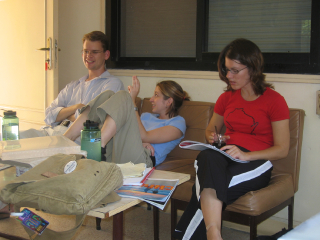 |
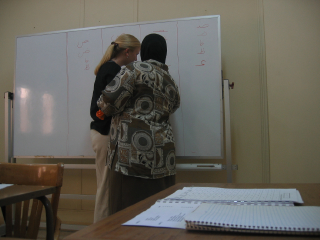 |
The Arabic
alphabet is so different from the English alphabet that it takes a long
time to learn to read, even with good teachers like Ashgan and Ibrahim |
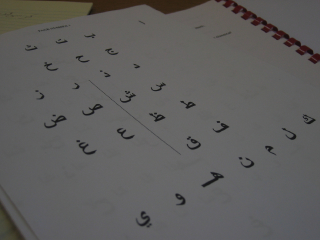 |
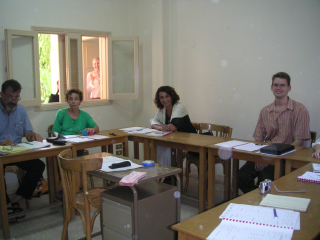 |
This
is my class. In addition to Matt, Karen, Aaron, and I, there were three students from Italy.
The other class had the other five volunteers from our group and one missionary from
Canada. |
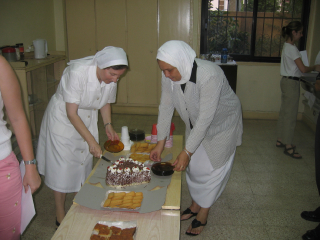 |
Celebrating our
success at a graduation party ~ we all passed our exam! |
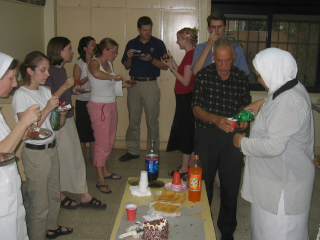 |
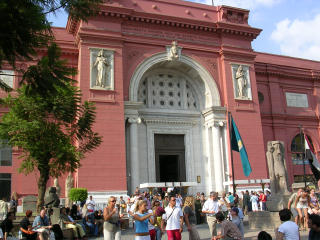 |
Lachlyn, Rachel,
Laura, and I visited the Egyptian Museum in Cairo ~ this is where some of
the mummies are kept |
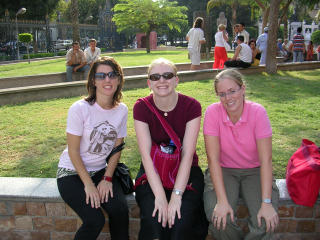 |
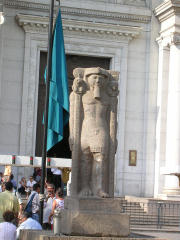 |
We weren't allowed
to take photos inside, but these statues are in front of the museum |
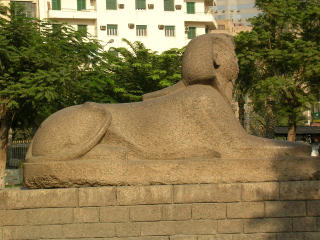 |
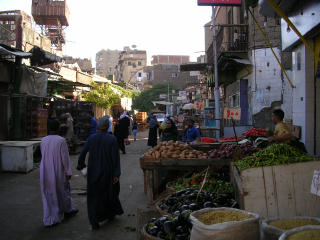 |
The souk is a busy
market where people sell animals, produce, and bread. It is also
where I do the majority of my food shopping. |
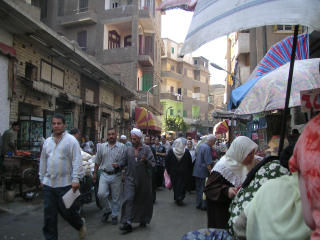
|
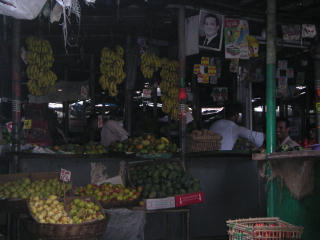 |
The fruit at the
souk is great, but I'm still not comfortable with the idea of buying my
meal while it is still alive! |
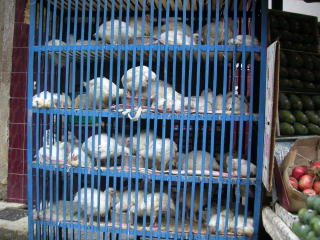 |
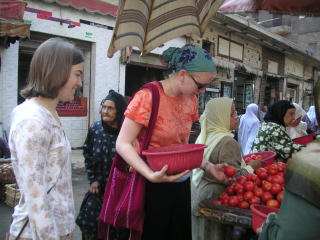 |
As you
can see, Rachel and I blend in really well with the other women at the
souk (read sarcasm here). On a more serious note, we have found that
some, not all, of the Egyptian women selling produce are very friendly and
eager to talk, providing us a good opportunity to practice our limited
Arabic vocabulary. |
| Two
evenings each week there is a performance of the whirling dervishes at the
citadel (shown to the right). The performers spin in circles for as
much as 20 or 30 minutes at a time while musicians play a variety of
instruments (including finger symbols) behind them. |
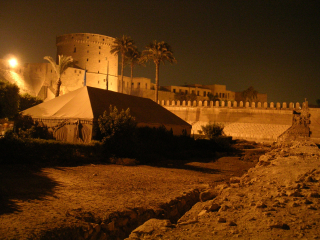 |
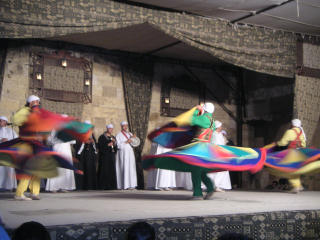 |
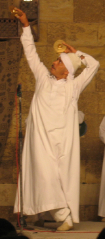 |
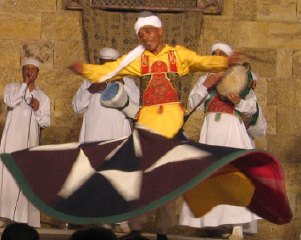
|
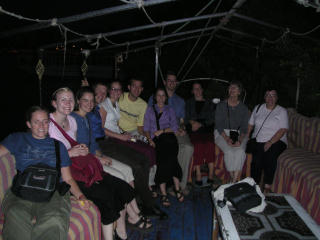 |
When some of the
PC(USA) staff were in town, we went on a boat ride down the Nile, which
gave us some scenic views of Cairo |
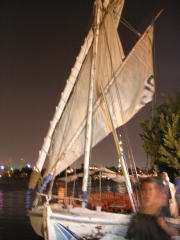 |
 |
| Toward the end of September, we toured two marginalized
communities in Cairo. Neither have public services, such as education and
hospitals. CEOSS is a social service organization through the Coptic
church that works to provide education, healthcare, and business loans to people
in these communities in order to improve standards of living. |
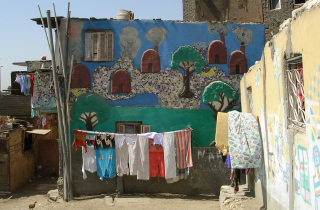 |
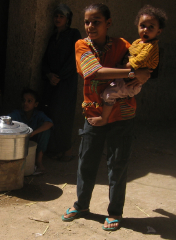 |
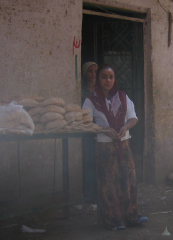 |
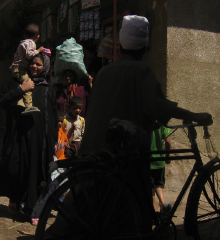 |
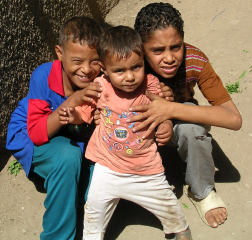 |
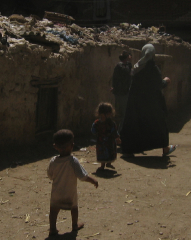 |
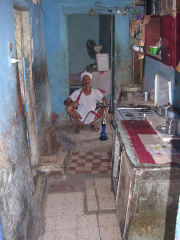 |
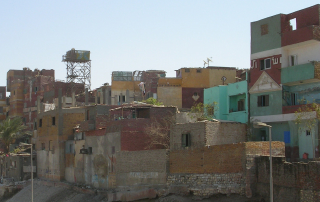 |
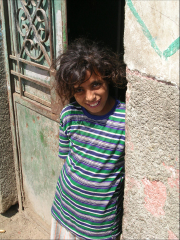 |
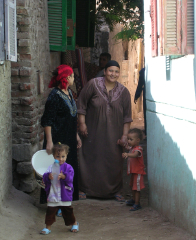 |
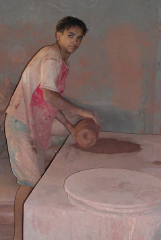 |
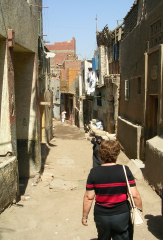 |
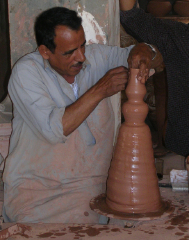 |
 |
We were invited to
a wedding and it was fun to see how an Egyptian wedding differs from one
in the US ~ I haven't seen balloons and confetti in many US weddings |
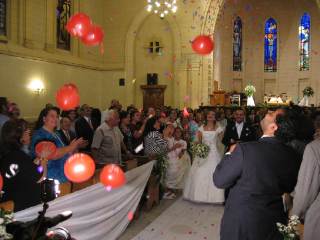 |
